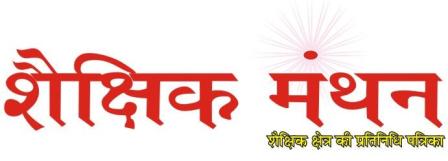A 360 degree education
 recent announcement
recent announcement
from the HRD minister to the
effect that the National Cadet
Corps will be made an elective
course is welcome. I
remember my college
days of 1962-65, when
the NCC was compulsory
for all students. I
served in the NCC
Corps of Signals for the
first year, Infantry for the
second, and Engineers for the
third. That was immediately after
the conflict with China, and hence
all of us had to serve in the NCC.
Even though it was compulsory, we
enjoyed the weekly parades and
the milk and snack supplements afterwards.
We also enjoyed the
yearly week-long camps. It added
spice to our college life and we
grew up as conscientious citizens,
with some familiarity with military
life and national security. I was sad
when I heard that one of the IITs
had scrapped the NCC.
The Indian education system
in general, and the higher education
system in particular, has
evolved from an egalitarian system
to a competitive one. In the process,
education has shrunk from
360 degrees to 120. Unitary systems
like the IITs, IIMs, IISERs and
IIITs are most sought after as students
and parents consider these
places where one gets not simply
degrees but an assurance of better
jobs and careers. Unfortunately,
knowledge is not unidimensional.
Besides formal education inside the
classroom, which is only 120 degrees,
there are two important elements.
First, the development of
personality through activities like
sport, culture and schemes like the
NCC and the National Social Ser-
vice. Second, the development of
communication skills and social involvement
through the activities of
hostels, gymkhanas, festivals,
clubs etc.
India, as a society, is passing
through a period of stress. Economic
prosperity has brought social
and familial ambitions to the
fore. Young boys and girls are subjected
to a rigorous coaching culture
when they should be developing
capabilities as per their aptitudes.
The stress of a career is taking
its toll on families as well as
young individuals. What matters
is the total marks in PCM. It is
difficult to understand why only
physics, chemistry and mathematics
should matter. Such a
skewed value system has produced
many maladies in our
higher education.
While arguing about the
NCC’s importance, one would like
to point out some other issues as
well. Whenever a new NCC commanding
officer came to IIT, I used
to invite him for a cup of tea. The
discussions were always cordial.
However, I tried to emphasise that,
with the times, the NCC needed to
change its approach to training.
The brute-force training imparted
to cadets creates lot of dissatisfaction.
College authorities have to
sometimes armtwist students to
enrol. That should not happen.
What is needed is a platform for
educationists, NCC officers and
students to debate such issues and
evolve a new model of training.
The NCC has some unique attractions
even today. The
para-gliding event attracts a
lot of students and even
nearby residents. The treks
in the Himalayas are a big
draw. The rock-climbing training
is very popular. So much so
that one IIT has built a wall for rockclimbing.
Students are hungry for
learning life skills and the NCC is a
suitable platform for imparting such
skills. It should, however, be done
with a modern approach.
Academic boards of universities
and institutes need to take
note of the concept of 360-degree
education. Unless importance is
given to sports, culture, values
and societal awareness, technical
education alone will not equip
students sufficiently. Credits
must be given for such activities.
In case one does not want to put
it on the academic grade sheet,
such activities can appear on an
additional grade sheet. I am sure
prospective recruiters will look at
this other grade card very carefully.
There should be quality norms for
providing credits for these activities.
It is also recommended that
quality teachers be made available.
It is essential that better infrastructure
be available on campus
for such activities. When a
university in western India decided
to refurbish its two tennis
courts, it became front-page
news in local dailies. That it happens
so rarely is a tragedy, not
news.
–Sanjay G. Dhande
(Former director, IIT Kanpur)
